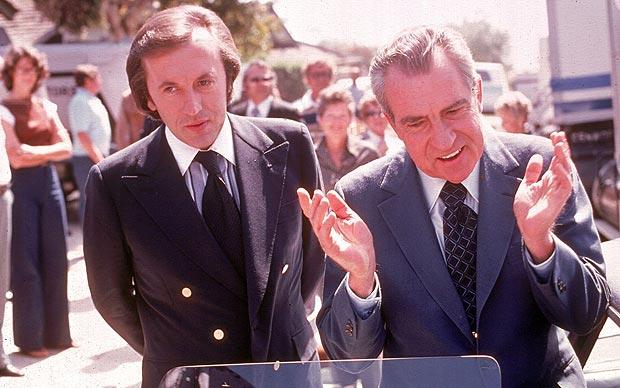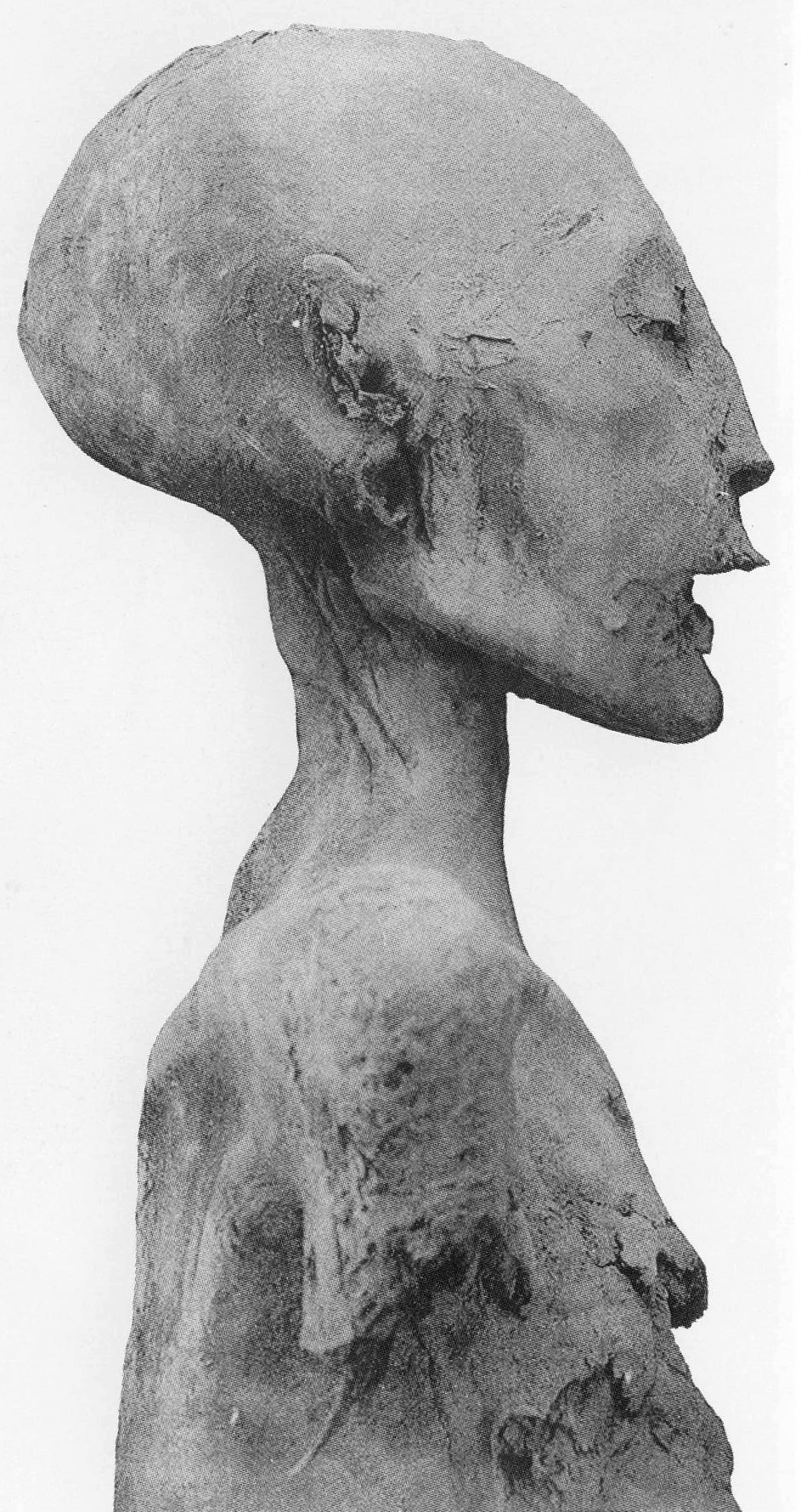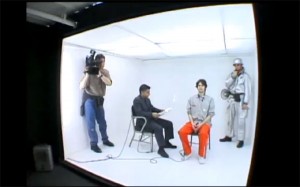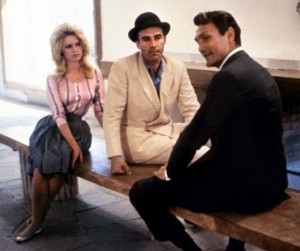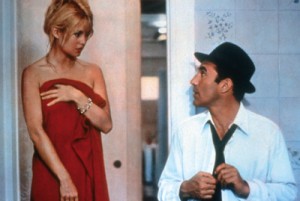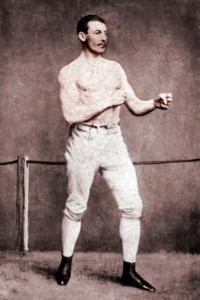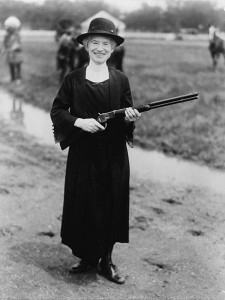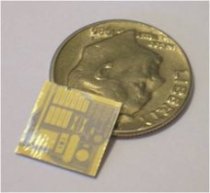David Frost interviews Muhammad Ali in 1974. Three years later the world was surprised when Frost whipped Nixon’s behind.
Tags: David Frost, Muhammad Ali
We are doomed
Watch for the blue star in Oct (comet), behind it comes the destroyer, planet X, wormwood.
Why do you think they are building seed vaults in the artic? this large body does not hit us but it’s gravitational force will cause masive earthquakes the likes of have never been seen before!
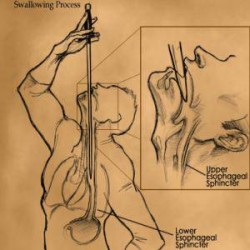
"He distinctly felt the end of the sword blade strike the spoon and for several days could feel it gradually changing its course toward his stomach."
An Ohio sword swallower did his stomach no favors when he downed a spoon on a bet, as recorded in the following article from the August 9, 1887 Brooklyn Daily Eagle, which was a reprint from the Cincinnati Commerical Gazette.
••••••••••
“A most remarkable and successful surgical operation was performed upon one of the male patients of the Cincinnati Hospital, Sunday morning last, by Dr. F.W. Walker, of 66 West Eighth Street, who was assisted by Surgeon John A. Murphy and several of the interns of the hospital corps. On July 16 a young man of medium build, who registered as Andrew S. Driver, aged 22, and residing at 61 Pierson Street for three months past, entered the hospital. He was almost bent double, and walked with great difficulty, and in answer to questions stated that he was suffering from most agonizing pains in the stomach.
For several years he has been traveling with shows about the country as a fakir, and performing the sword swallowing feat. About four years ago, while giving a performance in one of the smaller towns in the northern part of the State, he was bantered by a number of spectators who thought the sword he swallowed was worked by springs, and they dared him to go through the same act with an ordinary case knife. In this he was successful, and a number made up a purse and wagered him quite a sum that he could not swallow an ordinary teaspoon.
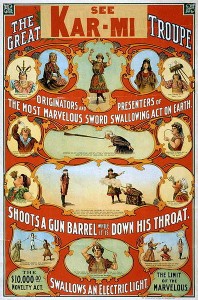 He accepted their challenge, and picking up a treble plated teaspoon of Rogers’ manufacture slowly placed it in his mouth and swallowed it. He after that continued the sword act, feeling no ill effects from the spoon until about six months ago, when, during one of his performances, he distinctly felt the end of the sword blade strike the spoon and for several days could feel it gradually changing its course toward his stomach. Yet all the while he had experienced no painful sensation. Some two weeks later, however, he was attacked with violent cramps and pains, beginning in his right side and afterward changing the course of the stomach in the immediate neighborhood of the navel. These attacks were only periodical at first, but became gradually more frequent, and finally he concluded to come to Cincinnati for treatment.
He accepted their challenge, and picking up a treble plated teaspoon of Rogers’ manufacture slowly placed it in his mouth and swallowed it. He after that continued the sword act, feeling no ill effects from the spoon until about six months ago, when, during one of his performances, he distinctly felt the end of the sword blade strike the spoon and for several days could feel it gradually changing its course toward his stomach. Yet all the while he had experienced no painful sensation. Some two weeks later, however, he was attacked with violent cramps and pains, beginning in his right side and afterward changing the course of the stomach in the immediate neighborhood of the navel. These attacks were only periodical at first, but became gradually more frequent, and finally he concluded to come to Cincinnati for treatment.
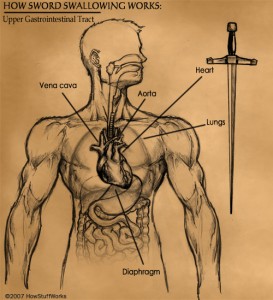 Arriving here he had a more favorable turn and remained most of the time about home until the date mentioned, when he was again attacked in a more violent form than at any previous time. He then concluded to seek medical aid and to that end entered the hospital for treatment. He was closely questioned and placed under a rigid examination, but owing to the excessive hot weather and the delicacy with which his case would necessarily have to be handled., the surgeons thought it advisable to defer the operation until the weather became more favorable. He was informed Sunday morning that in order to extract the spoon from his stomach a very delicate and yet severe surgical operation would have to be performed, and accordingly during the early morning hours of that day he was placed under the influence of the anaesthetic and the operation began.
Arriving here he had a more favorable turn and remained most of the time about home until the date mentioned, when he was again attacked in a more violent form than at any previous time. He then concluded to seek medical aid and to that end entered the hospital for treatment. He was closely questioned and placed under a rigid examination, but owing to the excessive hot weather and the delicacy with which his case would necessarily have to be handled., the surgeons thought it advisable to defer the operation until the weather became more favorable. He was informed Sunday morning that in order to extract the spoon from his stomach a very delicate and yet severe surgical operation would have to be performed, and accordingly during the early morning hours of that day he was placed under the influence of the anaesthetic and the operation began.
Dr. Walker skillfully handled the knife and opened the stomach a trifle below the navel, where, toward the right side, imbedded in the intestines, was found first the handle of the spoon, and working the finger along through the growth the bell part of the spoon was reached and the spoon removed intact from the patient. The intestines were placed carefully back and the wound dressed and sewed up, the patient during the operation giving hardly any indication of pain. During Sunday, after recovering from the effects of the anaesthetic administered, he complained of pain and was quite restless, but during yesterday seemed to be recovering nicely, and last night, when the hospital was visited, he was resting easily.”
Related post:
Human Ostrich Dines on Too Fast on Hardware. (1904)
Tags: Andrew S. Driver, Dr. F.W. Walker, Surgeon John A. Murph
I never liked Star Trek or any sci-fi TV shows except for The Twilight Zone, but this is still fun. Nimoy, by the way, played a Little Italy street tough in 1952’s Kid Monk Baroni.
Tags: Leonard Nimoy
Kat Fatland argues that the Internet changing our brains isn’t necessarily evil at Good. An excerpt:
“Think about how many tools you use in your daily life without even thinking about it. You drive a car to work (or ride a bike… the principle is the same). You use your GPS device, cell phone, iPod, and other tech devices so flawlessly that, according to Ramachandran’s principle, they may as well be extensions of your very self.
Sound scary? It’s not. We’ve been using tools for centuries—it’s what distinguishes us from most species of lesser intelligence. And we haven’t just used tools, we’ve relied on them. In Clark’s book, he cites the wristwatch as an example. Human lives are drastically different now than they were before we had the ability to know the time right down to the minute. Before clocks were widespread, and people had only the sun or the church bells to tell them it was noon, scheduling was virtually nonexistent. Or think about the pen and paper. These tools have changed the very fabric of how we exist with each other in the world—and few would argue these changes have made our lives worse.”
Tags: Kat Fatland, V.S. Ramachandran
From Jennifer Kahn’s recent and fun New Yorker profile of tech visionary Jaron Lanier, who is best known for coining the term “virtual reality” and authoring the cautionary tome, You Are Not a Gadget:
“In Mesilla, Lanier’s father allowed him to design their new home. Lanier, who was eleven, chose a geodesic dome, and with his father’s assistance he drew up blueprints calculating the angles of the frame, plus plans for a squat, cantilevered spire that he envisaged as the entrance. (‘Clearly a subconscious phallic expression of some kind,’ he told me.) But the project proceeded slowly. ‘We’d get enough money to pour the foundation for one part of the house, and then, after a few weeks, we’d get enough to do another part,’ he recalls.
During the first two years that the dome was under construction, Lanier and his father lived in an unheated canvas Army tent that was stiflingly hot in summer and frigid in winter. Lanier remembers shivering uncontrollably at times, ‘like I was having a seizure.’ The family belongings, which included his mother’s grand piano and her antique furniture, were wrapped in plastic and heaped together on the ground outside the tent. ‘We sealed the piano in a bag, kind of,’ Lanier said. ‘It must have sat out there for a year.’”
“In Mesilla, Lanier’s father allowed him to design their new home. Lanier, who was eleven, chose a geodesic dome, and with his father’s assistance he drew up blueprints calculating the angles of the frame, plus plans for a squat, cantilevered spire that he envisaged as the entrance. (‘Clearly a subconscious phallic expression of some kind,’ he told me.) But the project proceeded slowly. ‘We’d get enough money to pour the foundation for one part of the house, and then, after a few weeks, we’d get enough to do another part,’ he recalls.During the first two years that the dome was under construction, Lanier and his father lived in an unheated canvas Army tent that was stiflingly hot in summer and frigid in winter. Lanier remembers shivering uncontrollably at times, “like I was having a seizure.” The family belongings, which included his mother’s grand piano and her antique furniture, were wrapped in plastic and heaped together on the ground outside the tent. ‘We sealed the piano in a bag, kind of,’ Lanier said. ‘It must have sat out there for a year.’”
••••••••••
Buckminster Fuller and Maharishi Mahesh Yogi conduct a press conference at Amherst in 1971:
Tesco creates virtual shopping opprtunities in subway stations in Korea.
A rumbling red-white-and-blue museum on steel wheels, the American Freedom Train toured all 48 of the contiguous states in America in 1976, the year of the Bicentennial. This classic photograph, author unknown, captures the steam locomotive in May of ’76 as it makes its way to Columbus and Atlanta. The ten display cars carried a trove of hundreds of pieces of rare Americana for viewing, including George Washington’s copy of the Constitution, Dorothy’s dress from the Wizard of Oz and a moon rock. Some home-movie footage of the Wisconsin leg of the trip:
Andy Warhol explains why he would be a better President than Richard Nixon.
Tags: Andy Warhol, Richard M. Nixon
Super Mouse – I saw you and now you die! (coney island)
You little fukc, it’s over you hear!!!!
All this time I thought I was seeing things. You were faster than any mouse ever bc all the rest are dead now and I guess natural selection created you but today you ran over my foot and under the sofa and now I know you are real and not just my eyes playing tricks on me.
The glue traps are coming out tonight in force. I will create glue trap borders everywhere until you are starving and you can’t help but try to cross and than I will bash your little head in. After a few days of that the poison comes out just in case there are even smarter mice than you. Poison always works buddy, You days are numbered fukcer!
Pseudo.com founder and Web 1.0 wackjob Josh Harris, he of the sadistic yet prophetic “art projects,” is asked to anticipate the future in a really thorough article by Courtney Boyd Myers at The Next Web. An excerpt from his bleak and bold vision:
“What drove Harris crazy when he lived in a Truman Show like reality with his ‘fake girlfriend,’ other than losing his fortune, was when people online, his followers, started to get into his head and he was barely able to make a decision at any moment. Harris says that scenario was like a caveman version of what’s to come. With your day split into microparts, you will suffer from a psychic fracture. The issue won’t be about maintaining privacy. Your privacy will be long gone. The issue will be when your brain overloads, what in computer terms happens when the CPU goes into complete multi-tasking mode. And this is how we will enter the hive, also known as the Matrix. And that’s Harris’ Singularity. It’s just a matter of time, he says.
‘This is how you have to look at it. I try not to make judgements, it’s just a natural evolutionary process. I don’t know how they knew it but The Mayans were right: 2012 is the end of the world. The world isn’t going to blow up. But 2012 is the year when the Singularity’s effects will start to take place. When our lives become a collection of micro day parts. Unlike Isaac Asimov, who said his biggest regret is that he wouldn’t be alive for The Singularity, we actually are going to be present at the shift. It’ll start next year. It’ll seem like magic, just like television was magic, radio was magic, the telegraph was magic, and maybe even smoke signals were in their day. This is going to be real magic and we’re going to be alive to witness it.'”
Another Josh Harris post:
Tags: Courtney Boyd Myers, Josh Harris
Kids discuss LSD use during an experiment.
More People-on-LSD posts:
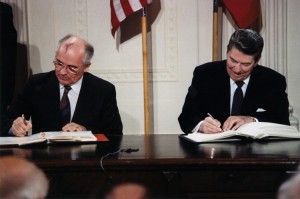 Newly minted octogenarian Mikhail Gorbachev holds forth in Spiegel on modern Russia, which looks to his experienced eyes a whole lot like the stubbornly backwards Soviet Union. An excerpt:
Newly minted octogenarian Mikhail Gorbachev holds forth in Spiegel on modern Russia, which looks to his experienced eyes a whole lot like the stubbornly backwards Soviet Union. An excerpt:
“SPIEGEL: Let’s jump forward in time to present-day Russia. When Putin came into office in 2000, you supported him. Had you already known him for some time?
Gorbachev: He helped me when I ran in the 1996 presidential election.
SPIEGEL: You thought he was clever at the time. Now you say that under his leadership Russia came to resemble an African country, where dictators rule for 20 to 30 years. What do you suddenly find so objectionable about him?
Gorbachev: Careful: It is you that is using the word ‘dictator.’ I supported Putin during his presidency, and I still support him in many ways today.
SPIEGEL: You asked him not to run for president again.
Gorbachev: What troubles me is what the United Russia party, which is led by Putin, and the government are doing. They want to preserve the status quo. There are no steps forward. On the contrary, they are pulling us back into the past, while the country is urgently in need of modernization. Sometimes United Russia reminds me of the old Soviet Communist Party.
SPIEGEL: Putin and President Dmitry Medvedev want to decide between themselves who will be the next president in 2012.
Gorbachev: Putin wants to stay in power, but not so that he can finally solve our most pressing problems: education, health care, poverty. The people are not being asked, and the parties are puppets of the regime. Governors are no longer directly elected. Direct mandates in elections were eliminated. Everything works through party lists now. But new parties are not being allowed, because they get in the way.” (Thanks Longreads.)
•••••••••••
Gorbachev-Reagan Chiclets commercial by Spitting Image puppets, 1987:
Tags: Mikhail Gorbachev, Vladimir Putin
In the days before telegraph and Morse code let alone radio, information about events that occurred in Europe wouldn’t reach America for several days. Newspapers in New York came up with a solution–get a jump on the competition by having a clairvoyant tell them what happened. This could have been some sort of joke, but I don’t think so. An excerpt from a story in the April 19, 1860 Brooklyn Daily Eagle:
“The New York Daily News has been consulting a clairvoyant on the result of the Prize Fight which all suppose to have been fought by Heenan and Sayers on Monday, and says:
‘A clairvoyant in this city declares that one of the pugilists who yesterday fought for the championship of England has been killed. We have been unable to ascertain which; but the lady inclines to think it is the ‘larger man,’ whether as to the muscle or as to the pugilistic fame we know not. But she is positive one of them is killed. We are, therefore, all the more curious to know the result. It will affect either spiritual seeing or material hitting; which, a few days will tell. The old lady adds that the killed man is not the winner.”
Mike Wallace interviews Bette Davis. Just listen to that irritating old witch. And Davis was no bargain, either.
Tags: Bette Davis, Mike Wallace
More about swarm robots, this time microchip-sized crafts designed by engineer Mason Peck at Cornell University, which can be used to inexpensively probe the outer reaches of space. They’re called Sprites. An excerpt from the Cornell page about them:
“Inspired by the success of the first Sputnik launch in 1957, we focus on a simple, feasible, but genuinely new design. For three weeks, the 23 inch diameter sphere of Sputnik I broadcast its internal temperature and pressure as it orbited and hinted at the potential of artificial satellites. A half century later, we expect to duplicate Sputnik’s achievement using less than one ten-millionth of its mass. Our design packages the traditional spacecraft systems (power, propulsion, communications, etc) onto a single silicon microchip smaller than a dime and unconstrained by onboard fuel.'” (Thanks Singularity Hub.)
••••••••••
Americans amazed by Sputnik, 1957:
Tags: Mason Peck
Kudos to the folks at Open Culture for finding an archived Sports Illustrated article by William Faulkner, who reported on attending his first hockey game in 1955. An excerpt from “An Innocent at Rinkside“:
The vacant ice looked tired, though it shouldn’t have. They told him it had been put down only a few minutes ago following a basketball game, and after the hockey match it would be taken up again to make room for something else. But it looked not expectant but resigned, like the mirror simulating ice in the Christmas store window, not before the miniature fir trees and reindeer and cosy lamplit cottage were arranged upon it, but after they had been dismantled and cleared away.
Then it was filled with motion, speed. To the innocent, who had never seen it before, it seemed discorded and inconsequent, bizarre and paradoxical like the frantic darting of the weightless bugs which run on the surface of stagnant pools. Then it would break, coalesce through a kind of kaleidoscopic whirl like a child’s toy, into a pattern, a design almost beautiful, as if an inspired choreographer had drilled a willing and patient and hard-working troupe of dancers—a pattern, design which was trying to tell him something, say something to him urgent and important and true in that second before, already bulging with the motion and the speed, it began to disintegrate and dissolve.
Then he learned to find the puck and follow it. Then the individual players would emerge. They would not emerge like the sweating barehanded behemoths from the troglodyte mass of football, but instead as fluid and fast and effortless as rapier thrusts or lightning—Richard with something of the passionate glittering fatal alien quality of snakes, Geoffrion like an agile ruthless precocious boy who maybe couldn’t do anything else but then he didn’t need to; and others—the veteran Laprade, still with the know-how and the grace. But he had time too now, or rather time had him, and what remained was no longer expendable that recklessly, heedlessly, successfully; not enough of it left now to buy fresh passion and fresh triumph with.•
_________________________________
“Boom Boom” Geoffrion in his prime:
“Boom Boom” selling beer in 1985:
Another William Faulkner post:
Tags: A.J. Liebling, Bernie Geoffrion, Bill Ray, Boom Boom Geoffrion, William Faulkner
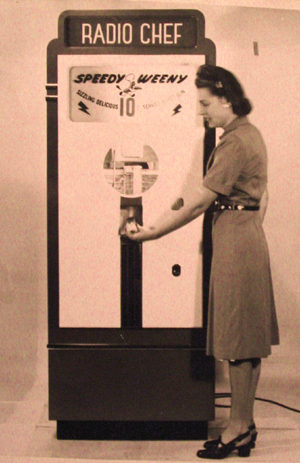
The Speedy Weenie machine used Devol’s microwave technology to dispense dogs. This photo was taken in his home.
Robotic arms that can grip and lift have been essential in everything from assembly lines to vending machines. Their creator, George Devol, who patented the invention in 1961 just passed away. An excerpt about the inventor’s beginnings from a New York Times obituary by Jeremy Pearce:
George Charles Devol Jr. was born Feb. 20, 1912, in Louisville, Ky. An experimenter from an early age, he studied mechanics and electronics in high school, but did not attend college. He worked for electronics companies in the 1920s, and in the early 1930s founded a small company, United Cinephone, to develop recording technology for movies.
That initial venture was not fruitful, and Mr. Devol turned his inventor’s hand to making devices that open doors automatically and other devices using machine controls. He also found a way to make laundry presses open or close when a worker approached. In 1939 United Cinephone installed automated photoelectric counters at the New York World’s Fair to count entering customers.
In the 1940s, Mr. Devol helped in an early application of the microwave oven, with the introduction of a machine for cooking and vending hot dogs, known as the “Speedy Weeny.”•
______________________________
Devol’s associate, Joseph F. Engelberger, demonstrates the technology for Johnny Carson in 1966, at the 9:09 mark.
Tags: George Devol, Joseph Engelberger
In 1980, David Frost met the Shah of Iran in Panama for the deposed leader’s final interview.
 The opening of “Lithium Dreams,” Lawrence Wright’s excellent 2010 New Yorker article about Bolivia’s chance for economic renaissance during the age of lightweight batteries:
The opening of “Lithium Dreams,” Lawrence Wright’s excellent 2010 New Yorker article about Bolivia’s chance for economic renaissance during the age of lightweight batteries:
“In southern Bolivia, there is a mountain called Cerro Rico—’the hill of wealth.’ It is a pale, bald rock, crisscrossed with dirt roads that climb the slope like shoelaces. More than four thousand mining tunnels have so thoroughly riddled its interior that the mountain is in danger of collapse. Its base is ringed with slums that spill into the old city of Potosí, a World Heritage site. Evo Morales, the President of Bolivia, recently told me that he and his countrymen see Potosí as ‘a symbol of plunder, of exploitation, of humiliation.’ The city represents a might-have-been Bolivia: a country that had capitalized on its astounding mineral wealth to become a major industrial power. Such a Bolivia could easily have been imagined in 1611, when Potosí was one of the biggest cities in the world, with a hundred and eighty thousand inhabitants—roughly the size of London at the time. Although Potosí began as a mining town, with the saloons and gaming houses that accompany men on the frontier, it soon had magnificent churches and theatres, and more than a dozen dance academies. From the middle of the sixteenth century until the middle of the seventeenth, half the silver produced in the New World came from Cerro Rico. Carlos Mesa, a historian who served as Bolivia’s President from 2003 to 2005, told me, ‘It was said throughout the Spanish empire, ‘This is worth a Potosí,’ when speaking of luck or riches.’ Potosí is now one of the poorest places in what has long been one of the poorest countries in South America.
Across the divide of the industrial revolution, there is another city whose promise of greatness now lies in ruins: Detroit. Even before the Curved Dash Oldsmobile rolled off the assembly line, in 1901, becoming the first mass-produced American car, Detroit was a showplace of labor, its huge factories producing iron, copper, freight cars, ships, pharmaceuticals, and beer. Following Oldsmobile’s lead, carmakers such as Ford, Packard, and Cadillac transformed the American economy. But Detroit’s triumph was remarkably short-lived. The city is half the size it was fifty years ago. Two of the Big Three carmakers, General Motors and Chrysler, went bankrupt in 2009, and all of them have cut their workforces drastically. Unemployment in Detroit is at fifteen per cent; the murder rate is the fourth highest in the country; and about a third of its citizens live in poverty. An estimated seventy thousand structures—houses, churches, factories, even skyscrapers—stand empty, many of them vandalized or burned. Parts of town are being farmed. Like Bolivia, Detroit is hoping for a second chance. And both of them are looking to a treasure that could revive their fortunes, and, incidentally, lead the world to a cleaner environment. That treasure is lithium.” (Thanks TETW.)
••••••••••
Bolivian President Evo Morales on the Daily Show in 2007:
Tags: Evo Morales, Lawrence Wright
From the 1960s.
More Joe Pyne posts:
Tags: Helen Gurley Brown
Small robots are much cheaper to build than large ones, so getting wee ones to communicate with one another and do a task makes sense.

